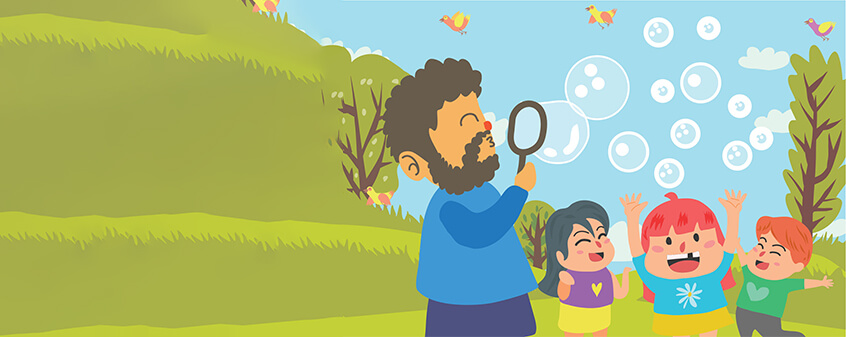Never before has the need for ‘life mastery’ been as prevalent as it is today. If you walk into any book store what you will find is a mass of ‘self-mastery’, ‘self-help’ type of books and a whole lot of books that are about spiritual development and fulfillment. Increasingly I hear of people who have left high paying corporate jobs to follow a yearning they have had.
I believe this phenomenon links back to Maslow and his hierarchy of needs. Maslow places the ‘need to know’ or the ‘need to self-actualise’ above all the other baser needs such as ‘survival’, ‘status’ and ‘affection’. I believe that in most that the world survival is now a given and therefore the very holy grail of human development is slowly but surely shifting towards finding life purpose.
New born and younger children express this ‘need to know’ naturally and innately as long as their need for survival in terms of food, shelter and comfort is addressed. Young children are curious; they look at the world with wonder and awe. A toddler can stare at a butterfly or an ant with utmost focus for long periods of time. They have no concentration issues, no attention deficit issues. Most of this wonder, curiosity and awe is killed in the process of conventional education and schooling. The natural process of learning does not exist in compartments of science, math, English, environmental studies and so on. Albert Einstein pointed out the frailties o f our schooling and education. He says that his schooling almost destroyed his interest in mathematics and physics. He only recovered this interest when he left school. Most adult geniuses retain their child like ability to ‘play’. Einstein often refers to his innovative work as ‘combinatorial play’. Yet whether in my pre-schools or my high schools I constantly have to find a defense for including play as an integral and essential aspect of the learning process. I remember coining the phrase when I began my first school ‘…..play is hard work!’
We drive out play and creativity in the process of schooling that does not centre around concepts that keep children engaged or the questions that the children have rather we dictate and mandate a curriculum that operates as though for every question there is an answer that must be known and through text books and subjects with key learning achievements that are the same for every child of the same age. We really don’t care about what interests these young learners. What we don’t realize is that the brain is best engaged when the brain seeks out meaning in an area of interest. The next best way is to create engagement of the brain by giving the brain a reason to learn something – a ‘why this’ is important to know, learn, use. The conventional system of schooling neither allows the brain to wander in search of the meaning nor does it provide the reason ‘why’. So most kids are left learning what is placed in front of them and literally labor through disconnected subjects and reams and reams of information that is a brain obstacle course. This entire navigation is a forced one for a single purpose goal of good grades and exam scores.
When sitting with my curriculum team, I force them to make sure that before any learning opportunity design process is created for offering to the children in class, the curriculum designers must have the ‘why’ clearly articulated. This is articulated in two ways. One as a statement and the second more important is by way of connecting the ‘content’ and the learning process to the student’s life in some meaningful way.
With most school content this is manageable. On the rare occasions when my curriculum designers and I are unable to find a ‘connect’ for the student’s brain we are at least honest with them. Most children and teenagers appreciate honesty. There are times when we develop a learning situation out of content that we cannot see a reason for mastering. An example is memorising a formula, when today all information is available at the touch of a button. In these cases we call the worksheets or learning tasks as ‘crack the exam’. In these cases we actually say to students. We cannot think of a reason ‘why’ you should do this. We can only be honest and say you need to do this if you want to ‘crack the exam’.
Throughout the process of learning we are exposing learners to the many life opportunities that exist outside of the conventional ones such as engineering and medicine. When students can visualize the future they aspire to have then there is an internal compelling force that will mobilize them to move towards it and to do the things that will enable the aspiration to materialize. Parents, teachers and society cannot motivate students to learn by force, coercion or manipulation. Its only if you can tap into things that students believe are of value to them that you begin to create huge possibilities for students to perform and create beyond your imagination.








